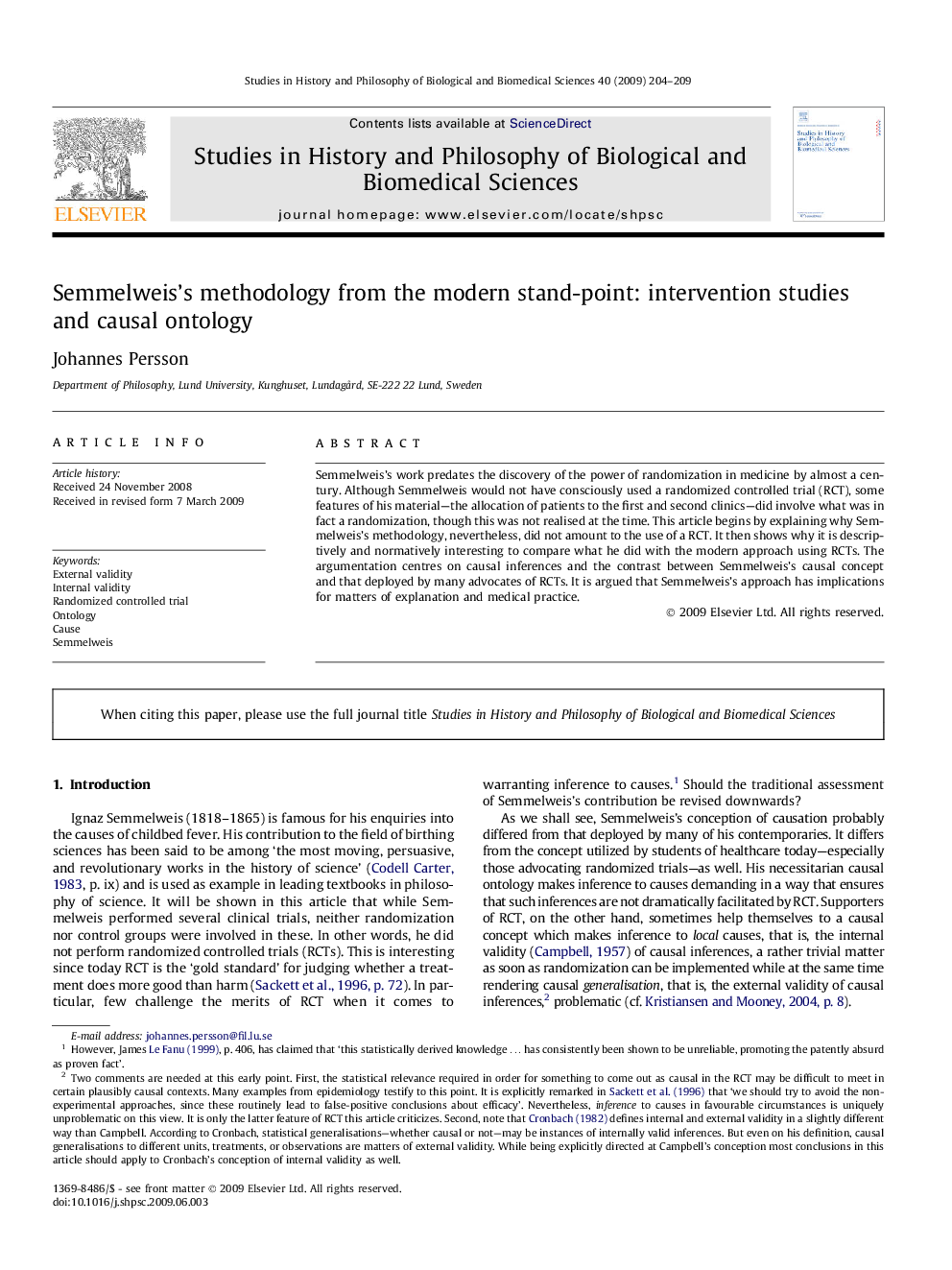| Article ID | Journal | Published Year | Pages | File Type |
|---|---|---|---|---|
| 7553345 | Studies in History and Philosophy of Science Part C: Studies in History and Philosophy of Biological and Biomedical Sciences | 2009 | 6 Pages |
Abstract
Semmelweis's work predates the discovery of the power of randomization in medicine by almost a century. Although Semmelweis would not have consciously used a randomized controlled trial (RCT), some features of his material-the allocation of patients to the first and second clinics-did involve what was in fact a randomization, though this was not realised at the time. This article begins by explaining why Semmelweis's methodology, nevertheless, did not amount to the use of a RCT. It then shows why it is descriptively and normatively interesting to compare what he did with the modern approach using RCTs. The argumentation centres on causal inferences and the contrast between Semmelweis's causal concept and that deployed by many advocates of RCTs. It is argued that Semmelweis's approach has implications for matters of explanation and medical practice.
Related Topics
Life Sciences
Agricultural and Biological Sciences
Agricultural and Biological Sciences (General)
Authors
Johannes Persson,
